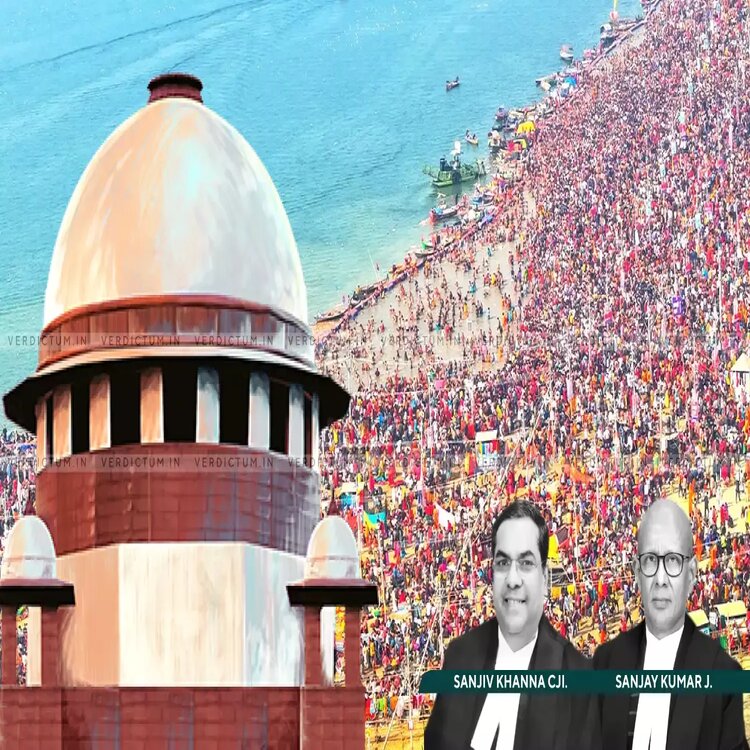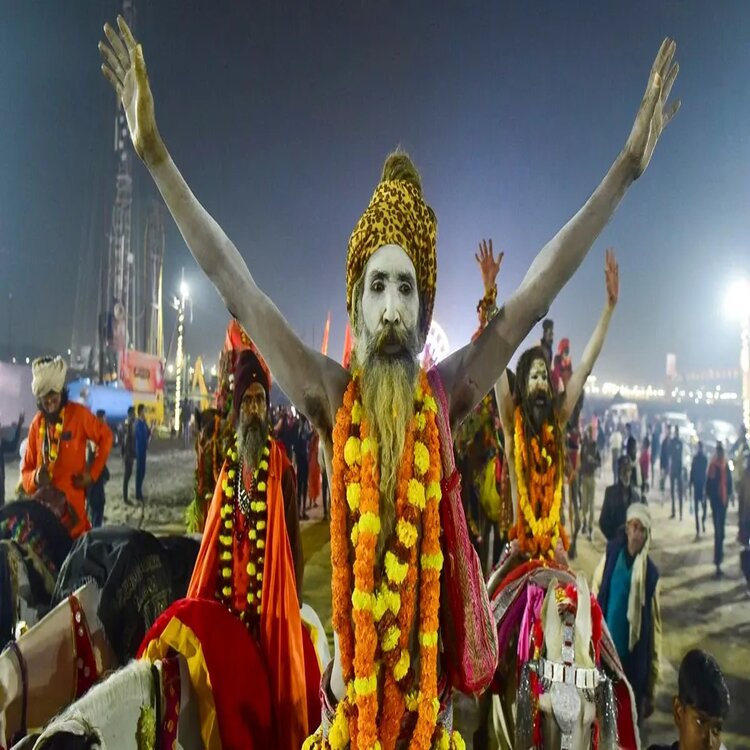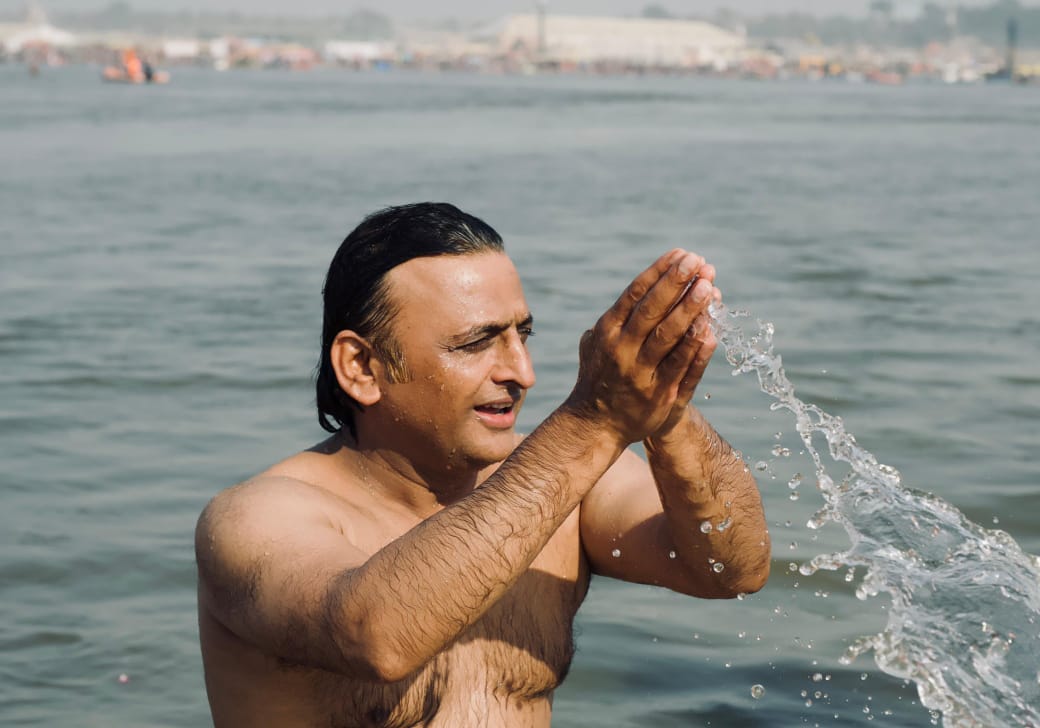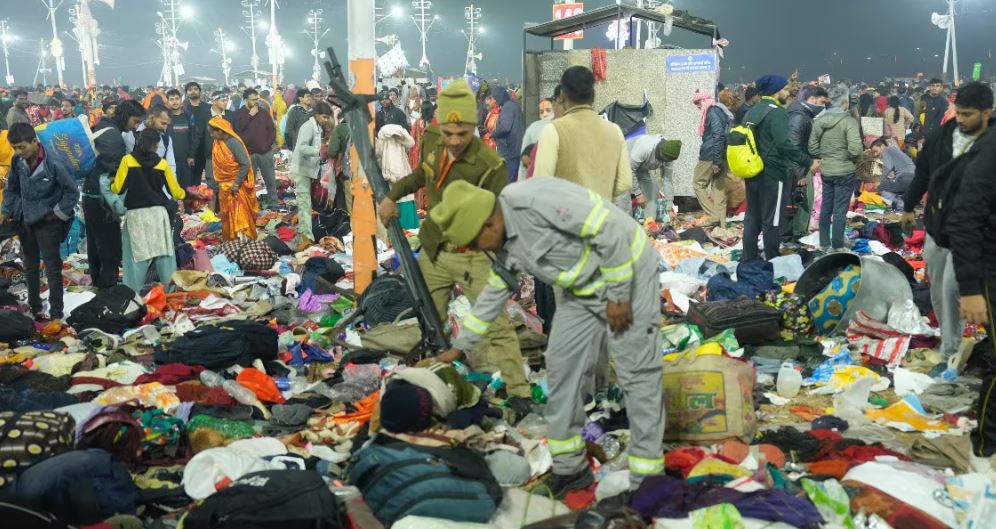Supreme Court Refuses to Entertain Plea on Stampede, Calls Incident Unplanned
Editor : Rishi | 03 February, 2025
The Apex Court has refused to entertain the Plea.

Source or Copyright Disclaimer
New Delhi, February 3, 2025: The Supreme Court on Monday refused to entertain a public interest litigation (PIL) seeking accountability and action over the recent stampede at the Maha Kumbh Mela. The apex court termed the incident "unfortunate" but declined to intervene, citing the adequacy of administrative and judicial processes already in place to address such tragedies.
The stampede occurred on January 30 at the Sangam in Prayagraj, where millions of devotees had gathered for the holy dip on Mauni Amavasya, one of the most auspicious bathing days of the Kumbh Mela. According to official reports, at least 25 people lost their lives, while more than 100 were injured in the chaos that ensued when a section of the crowd surged forward beyond control. Witnesses described scenes of panic, with people tripping and falling as authorities struggled to restore order.
The Uttar Pradesh government has ordered a high-level inquiry into the incident, promising strict action against any lapses in crowd management. Chief Minister Yogi Adityanath expressed his condolences and announced compensation of ₹5 lakh for the families of the deceased and ₹50,000 for the injured.
A social activist had filed a PIL, seeking the court’s direction to the Centre and the state government to enhance safety measures at the Maha Kumbh Mela and hold responsible officials accountable for negligence. However, the Supreme Court bench, led by Chief Justice D.Y. Chandrachud, observed that while the incident was deeply unfortunate, it did not warrant immediate judicial intervention.
“The state government has already constituted an inquiry committee, and necessary measures are being taken. It would not be appropriate for this court to interfere at this stage,” the bench stated. The court further emphasized that large gatherings inherently pose challenges despite best efforts by the authorities.
The Uttar Pradesh administration has defended its handling of the crowd, arguing that elaborate security and crowd control arrangements were in place. According to state officials, more than 25,000 personnel, including police, paramilitary forces, and volunteers, had been deployed to manage the crowd. However, the sheer volume of devotees led to unexpected bottlenecks, exacerbating the risk of a stampede.
UP Minister for Religious Affairs, Laxmi Narayan Chaudhary, stated, “The government is committed to ensuring safety at religious gatherings. The Kumbh Mela is one of the largest congregations in the world, and despite best efforts, tragedies sometimes occur. The inquiry will determine if there were any lapses.”
Opposition parties have criticized the government’s handling of the event, accusing it of failing to implement adequate crowd control measures. The Congress and Samajwadi Party have demanded greater accountability and better planning to prevent such incidents in the future.
Congress leader Priyanka Gandhi Vadra remarked, “The Maha Kumbh is a recurring event. Authorities should have learned from past experiences and put more effective crowd control measures in place.”
Meanwhile, families of the victims and various civil society groups have called for a more transparent investigation, arguing that the tragedy could have been avoided with better management.
The Maha Kumbh Mela, held every 12 years, attracts millions of pilgrims from across the world. This year’s event, spanning January to April, was expected to see over 100 million visitors. Given the magnitude of such gatherings, experts emphasize the need for better technology-driven crowd management, real-time monitoring, and increased medical facilities.
Urban planner and safety expert Dr. Anil Kapoor suggested that authorities should implement AI-based crowd monitoring, improved barricading, and exit strategies to ensure safer movement. “Stampedes occur when there is an uncontrolled rush. Proper channelization of movement and early warning systems can prevent such mishaps,” he added.
While the Supreme Court’s refusal to entertain the plea has drawn mixed reactions, the focus now shifts to the government’s inquiry and preventive measures for upcoming bathing days. The tragic incident at the Maha Kumbh serves as a stark reminder of the need for enhanced crowd management at mass gatherings. With millions yet to arrive for the remaining days of the festival, authorities face the critical task of ensuring that such a disaster does not repeat itself.
As the nation mourns the loss of lives, there is a collective call for greater accountability and improved planning to safeguard pilgrims attending future religious events of this scale.



